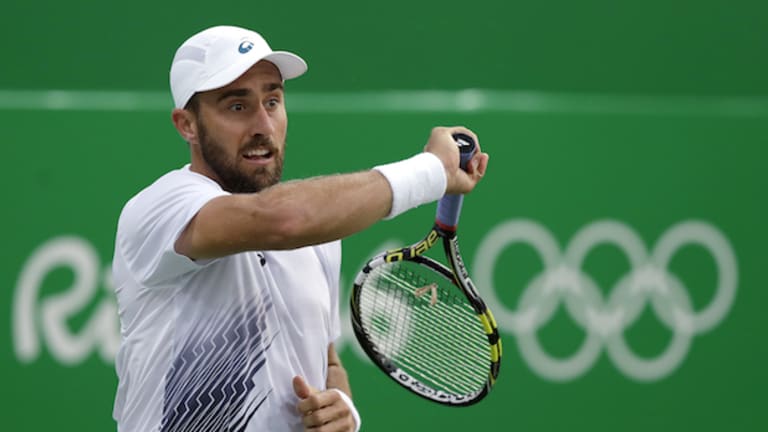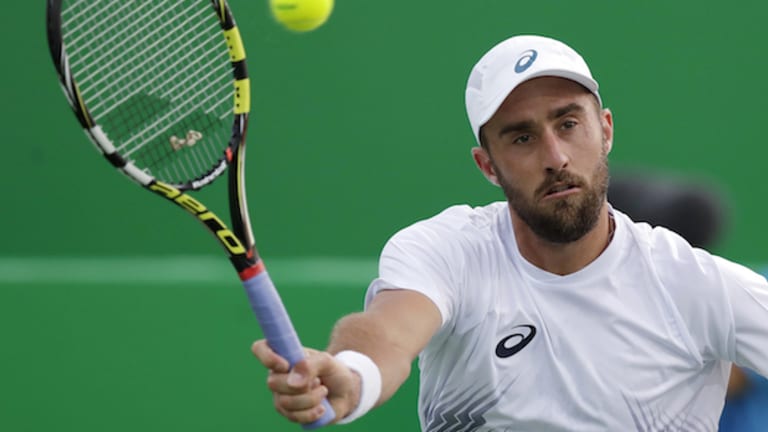How does the lone remaining U.S. man in the Olympic singles draw begin his second-round match in Rio? If you’re a team player like Steve Johnson, you take a minute to help fix a leaking barrel of ice on Court 4 before going on to beat your opponent, Gastao Elias of Portugal, in routine straight-set fashion.
The Olympics weren’t a hit with the American men this year. John Isner, Sam Querrey, and Bob and Mike Bryan all skipped it, and three of the players who did make the trip—Jack Sock, Brian Baker and Denis Kudla—went out in the first round. That has left the 22nd-ranked, 26-year-old Johnson to fly the nation’s flag by himself. Fortunately, the Games, with their all-for-one spirit, are right up his alley.
“I grew up my whole life playing team sports,” Johnson said on Tuesday. “I love being part of a team atmosphere. You play for yourself every week on tour. Here you get to play for something bigger than yourself. To have good buddies around, it’s all good fun for me.”
Whoever he’s playing for, the last two months has been nothing but good fun, and a series of dreams come true, for Johnson. He won his first career title in Nottingham, and at Wimbledon he made the second week and played on Centre Court for the first time. The fact that Johnson lost to Roger Federer didn’t take away from the experience at all. In fact, it was more overwhelming than he expected.
“Leading up to the match it felt to me like any other match,” Johnson said of his fourth-rounder against Federer. “When we were about to walk on Centre Court, it all changed. Walking on court in that moment it took my breath away, and it took a good 10 to 15 minutes for me to feel completely normal out there.”

